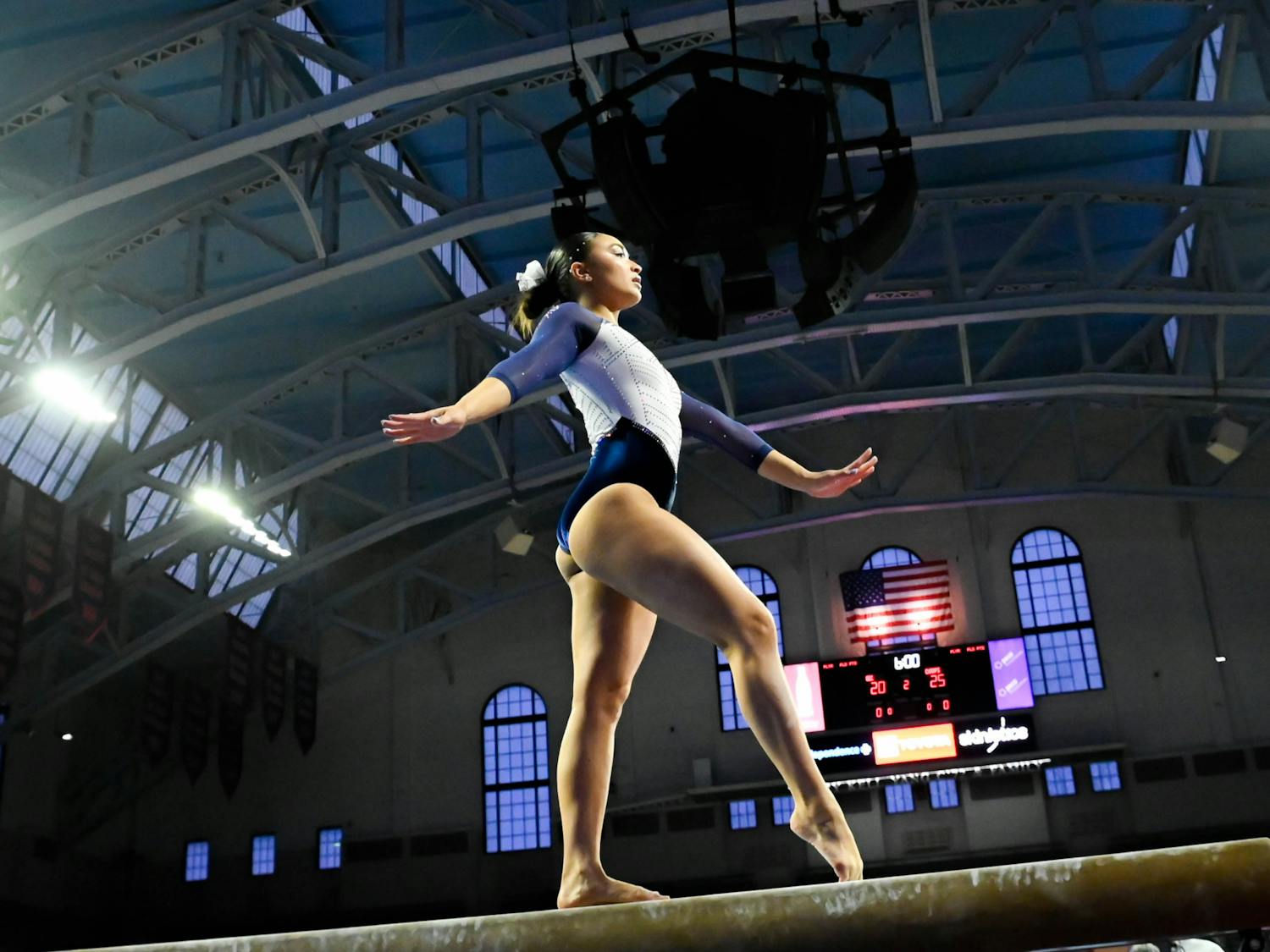Sophomore Lizzy Bader is a key part of Penn track’s future — even if she still has yet to compete in the event that might epitomize her time with the Quakers.
In high school, Bader was No. 1 in Delaware in both the 1600-meter and 3200m events, becoming the 1600m state champion in her senior year. In her junior year, she was the cross country state champion, and placed seventh at the Nike XC Southeast Regional.
Her success carried through her breakout during her first year at Penn. One of her cross country highlights was Lehigh University’s Paul Short run, where she scored and helped Penn to a third-place finish out of 38 teams. In indoor track, she beat her personal best mile time by five seconds. Bader's first year at Penn was marked with rapid improvement and adjustment.
From her results, it’s easy to take Bader’s transition for granted, but running at Penn was a far cry from what Bader was used to. There were only two divisions in the entire state of Delaware. At big state competitions, only so many schools and regions came together. Penn was an entirely different picture.
“There were two hundred, three hundred girls on the line and you knew you were never going to be running alone,” Bader said. “Everyone is on the same playing field as you and everyone is just as talented, even more than you could ever imagine. It’s just the next level.”
The pandemic quite possibly could not have happened at a worse moment. Not only did it take place in her first year, rendering her unable to finish out a full year of track and field, it also meant Bader couldn’t experience her first ever outdoor season.
For Bader, that had greater consequences because she was training for an entirely new event, the 3000m steeplechase. In contrast to her experiences in cross country and indoor track, Bader had never done the steeplechase before—a long-distance event unique to the outdoor season that includes barriers and water jumps—and the ending of the season meant she never got to run the event she spent so long training for.
“The initial response was a lot of frustration and being really upset and angry. I let myself have those feelings, and after a few days and weeks or so, I switched my perspective,” Bader said. “There’s nothing you can do. Being angry is not going to change it, and it’s out of your control. I found motivation through that, and found support through my teammates and my coaches.”
RELATED:
Penn shot put record holder Maura Kimmel transfers to Notre Dame
Pole vaulter Sean Clarke thriving after post-graduation transfer to Texas A&M
Bader made sure to keep driven as she was home. She followed the same schedule as she would have at school, setting up a quiet area to do homework, keeping the same hours for classes, blocking off set times for practice, and making sure she was following the same training schedule she would have at Penn. She also set up a few solo time trials of the steeplechase by herself, to get a taste of what it would be like.
“[The time trials were] fun because that gave another motivational purpose to keep training when a lot of athletes were like, ‘I have nothing to do this for, it’s not paying off,’” Bader said. “I had to keep reminding myself, ‘This is going to pay off.’”
Her self-drive explains the confidence that exudes from the coaching staff for her next three years at Penn, despite her derailed freshman season.
“She’s pretty outstanding on and off the track. She’s a very personable individual and she’s very very upbeat,” distance coach Matt Gosselin said. “On the track, she’s very disciplined and very motivated. She’s a very good athlete, and also a very fast learner. She’s going to be a huge part of our future going forward. She’s going to be an outstanding steeplechaser.”
Though Bader never had the opportunity to do the steeplechase before, her high school background in both long distance and also beginning as a hurdler helped her greatly. Gosselin provided insight into her training process, and the melding of those two skills.
“The process started with us teaching the basic mechanics of hurdling,” Gosselin said. “On top of that, the steeplechase is still a distance event. She was still doing 60 miles a week, but she was also incorporating a lot of hurdle drills.”
And with more time and hopefully some more experience under her belt, Bader has her sights trained on the future.
“One of my big goals is to really start the steeplechase, hopefully this year, and try to come close to either having the school record,” Bader said. “Of course everyone has this goal, but during cross country or track, to also make it to NCAA Nationals through my next three years at Penn.”









